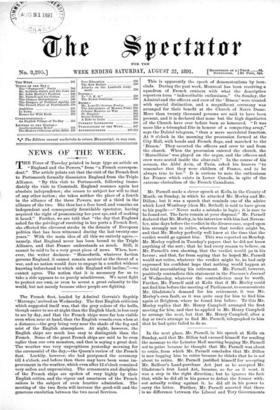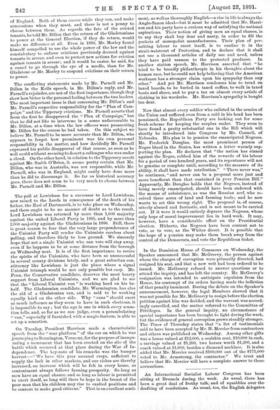In the next place, Mr. Parnell, in his speech at
Kells on Sunday, said that Mr. Dillon had excused himself for sending the message to the Leinster Hall meeting begging Mr. Parnell not to retire because he thought that Mr. Parnell was about to retire, from which Mr. Parnell concludes that Mr. Dillon is now begging him to retire because he thinks that he is not about to retire. Mr. Parnell justified himself for accepting Mr. Balfour's Land-purchase Act just as he accepted Mr. Gladstone's first Land Act, because, so far as it went, it was a step in the right direction ; but he ignores the fact that, while he did all in his power to defeat the former with- out actually voting against it, he did all in his power to carry the latter. Farther, Mr. Parnell asserted that there is no difference between the Liberal and Tory Governments
of England. Both of them coerce while they can, and make concessions when they must, and there is not a penny to choose between them. As regards the fate of the evicted tenants, he told Mr. Dillon that the return of the Gladatonians to power at the General Election, if they do return, would make no difference at all. Even in 1886, Mr. Morley found himself compelled to use the whole power of the law and the constabulary to enforce evictions previously decreed against tenants in arrear, and even to protect new actions for eviction against tenants in arrear; and it would be easier, he said, for a camel to go through the eye of a needle, than for Mr. Gladstone or Mr. Morley to suspend evictions on their return to power.



































